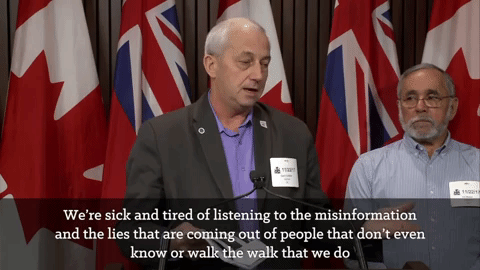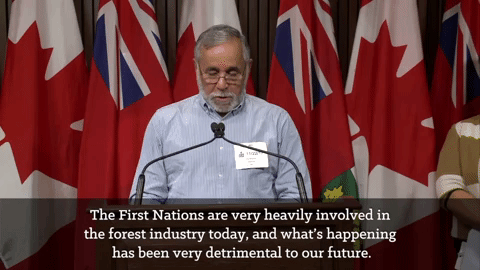As part of our ongoing litigation against Greenpeace in Canada, the court rightly ordered both parties to make documentary disclosure by December 15. During this process, both parties are required to exchange documents relevant to the litigation. Resolute delivered its affidavit of documents disclosing more than 20,000 documents. Greenpeace has failed to comply with the court order and has not made any documentary disclosure.
For several years, Greenpeace has used legal maneuvering to delay court deadlines and avoid the discovery process. Now, they are simply evading court deadlines altogether. As we’ve seen time and again, Greenpeace continuously fails to take responsibility for their harmful actions. This time, Greenpeace is defying their court-ordered responsibility to produce documents that are vital to this case.
Greenpeace’s countless motions, procedural delays and outright failure to comply with the Court’s order to make documentary disclosure raise serious questions about their credibility and legitimacy. What exactly is Greenpeace attempting to hide?
Greenpeace’s failure to respond to the courts in this case is symptomatic of its general unwillingness to respond to anyone who demands answers or accountability from them. For years, Greenpeace has shown indifference to boreal communities, who have voiced their concerns about the damages caused by their anti-forestry campaigns. First Nations, unions, and leaders of boreal communities have all reached out to Greenpeace only to be ignored.
At a recent press conference, frustrated representatives from communities across northern Ontario – including First Nations, mayors and unions – called for an end to activist distortions about Canada’s forestry practices. Boreal communities depend on forestry and recognize that the forest provides a sustainable and renewable resource. Community leaders also understand that decisions about forest management policies in the boreal forest should be determined based on sound science as well as the potential impacts on the hardworking people who live and work in the boreal. They should not be based on the irresponsible and unsustainable demands of misinformed activists like Greenpeace whose proposals threaten the future of these communities.
Leaders such as Wendy Landry, Mayor of Shuniah and member of the Red Rock Indian Band, recognize that activists like Greenpeace and their cohorts rely on misinformation to support their claims:
Mayor of Kenora Dave Canfield has worked in the forest sector and expressed his frustration with being told by anti-forestry groups what’s best for his community:
Forestry is an essential sector in Ontario and in the wider Canadian economy, as Unifor Research Director Bill Murnighan pointed out:
While anti-forestry activists seek to fill their coffers and fundraise based on misinformation campaigns, the livelihoods of those that live and work in the boreal hang in the balance. Mayor of Kapuskasing Alan Spacek recognizes this threat:
Forestry is also one of the largest employers of First Nation communities in Canada. As Chief Ed Wawia of the Red Rock Indian Band explained, First Nations are concerned about the impact of activist misinformation on their communities:
But anti-forestry activists like Greenpeace continue to disregard the concerns of boreal communities in an effort to promote their own agendas. When these communities reach out to Greenpeace and their allies, they are ignored.
Those who live and work in the boreal forest are most intimately acquainted with the reality on the ground. They know that Canada’s boreal forest is far from endangered, and they want policies based on sound science rather than fear. Most of all, they want to ensure that the boreal continues to thrive and sustain their communities for generations to come.





